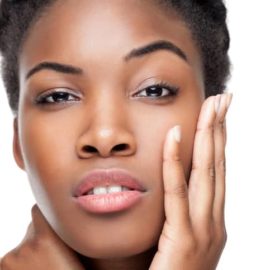Natural ingredients are part of an important new trend that, along with healthy beauty, is largely driven by the conscious consumer. According to Euromonitor International, the so-called conscious consumer was one of the top 10 global consumer trends in 2019. Simply put, a conscious consumer is a person who looks beyond the brand name, seeking out ways to make informed and positive decisions about what they buy and who they buy it from. They are people who will want to know more about the company to which they are giving their hard-earned money. After all, when you purchase something from a company, you are, quite literally, funding a company to continue doing what they’re doing, and if you don’t like or support what they’re doing and how they’re doing it, then there’s no need to fund them.
To summarise, the important thing for brands to know is that conscious consumers are here to stay. It has all to do with trends, which show that the demand for natural ingredients and eco-ethical products has increased by roughly 20%. This trend is further emphasized by a strong decline of ‘cruel’ ingredients in beauty products (almost 40% between 2015-2018), as well as an increase in global sales of ‘animal welfare’ products (up to 11%). As brands start to encourage the behavior of mindful consumption, it is clear that, this global consumer trend looks set to rise in the short, medium and long-term.
Content
Conscious consumers are influential
In fact, in the era of conscious consumers, the influence of social media has made veganism a prominent and fashionable trend, championed by celebrities like Jennifer Lopez, Miley Cyrus, and Chinese pop singer Long Kuan. As this movement gains momentum, it’s important to note the following key points:
- Consumer influence: Conscious consumers are influential and use social media to spread trends.
- Veganism in the limelight: Social media has propelled veganism, one of the fastest-growing trends, into the minds of conscious consumers.
- Fashionable veganism: Consumers now see veganism as inclusive and stylish, animal welfare concers will extend to other industries.
- Expanding animal welfare concerns: Beyond food, beauty, and fashion, animal welfare concerns will extend to other industries.
- Flexible Veganism: Modern consumers interested in healthy beauty are adopting a flexible approach to veganism, emphasizing natural ingredients.
- Brands’ responsibility: To support this trend, brands need to offer ethical, cruelty-free products with natural ingredients.

What type of natural ingredients are consumers looking for?
Furthermore, looking at the movement of conscious consumers reveals more insights about what brands should be doing to address consumer preoccupations today. In particular, they want natural products within the healthy beauty standards, it’s also true that they don’t want them at any price: conscious consumers also need to be certain that the natural ingredients they choose are sustainable.
Defining sustainability in the cosmetic field involves a series of actions across the supply chain:
- Guaranteeing sustainable ingredient sourcing and traceability
- Developing transparency around ingredients’ origins and benefits
- Dealing with waste in a variety of formats, from experimenting wth zero-waste products
- Providing natural and organic certifications
- Applying “super-recycling” processes that deal with production waste. For instance, at Provital, we use rice from discarded grains, apples from the juice industry’s waste and buchu from the essential oils’ waste
- Ensuring production processes are environmentally friendly, including measuring water waste
At the same time, a look at the wellness market today shows a convergence of trends. While consultants such as McKinsey confirm the continuous growth of the wellness industry (growing at a rate of more than 5% annually). For instance, their 2021 survey confirms consumers are interested in the juncture of wellness across six dimensions: health, fitness, nutrition, appearance, sleep, and mindfulness. Their article on ‘Still feeling good: The US wellness market continues to boom’ also showed that when consumers are asked about preferring natural ingredients or effectiveness, “natural” wins over for 28% of consumers in the cosmetic product category.
Meaning that brands must engage in a total transition that allows them to include not only natural ingredients, but also the right natural ingredients for cosmetic formulas. As an example, it’s possible to take a look at the total update of Provital’s policies in an effort to include increasing interest in sustainable practices regarding the use of natural ingredients. As such, we’ve incorporated a series of actions that guide our work to make environmental, social and productive improvements, all with the aim of becoming a sustainable partner and supplier. This includes becoming the first supplier of cosmetic products to meet the Nagoya protocol.
Provital’s commitment to healthy beauty
In conclusion, it’s clear that ethics has become mainstream and that the demand for improved transparency and purpose is forcing beauty companies and brands to cater to a more ingredient-savvy consumer, one who wants to stand out through their product choices and the causes they believe in, and they aren’t afraid to show it and share with the world.
Provital meets the needs of the conscious consumers by offering them just that – eco-ethical and healthy beauty products transparently made out of sustainable ingredients.
We believe that taking care is taking action. Taking care is the force that moves us forward, and it is also our commitment to people, communities and the planet. We care and take action for them, with them.
We care by combining nature and science to capture the essence of the earth on innovative products.
Provital. Do Care.
No comments yet
There are no comments on this post yet.





Leave a comment